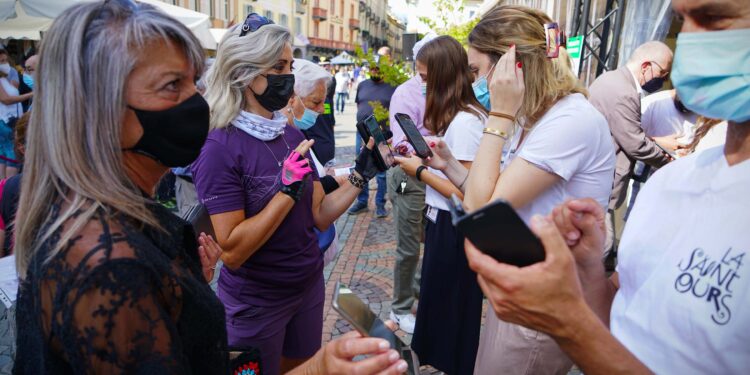The chaos that began in the first months of 2020 still continues as people are tired, sick and absolutely distraught because of the mess that the COVID-19 pandemic has made. Europe was one of the first countries to be struck by the virus and in a very terrifying way. The lives of the people in Europe changed drastically ever-since and still continues to be impacted by it.
- Work redefined
The pandemic has redefined the work structure. After the offices were officially shut, all the workforce had to shift to remote working, i.e. everyone had to start working from home. This concept has been familiar to the IT professionals, but for other fields like education, sales, finance, etc. working from home has proven to be more difficult than they imagined. Although work from home has been going on successfully for the past three years, people have paid in terms of their disrupted private lives, disturbed work-life balance, etc.
- Finding a sustainable way of living
Another significant change that Europe saw was a change in the way of living. More people started opting for a sustainable way of life. People started growing their own vegetables and fruits in their backyards, reduced use of plastic, started to avoid junk or any other material that couldn’t be recycled. They preferred not to touch anything that was handled by many people. Overall, they started taking their own and the planet’s health very seriously as the pandemic continued to wreak havoc in everyone’s lives.
- Opting for a healthy lifestyle to avoid health issues that would affect immunity
People in Europe also started taking their health very seriously and started making way for a healthier lifestyle. They threw out unhealthy and harmful habits, got rid of their sedentary lifestyle and started to exercise more, eat healthy and meditate for all-over relaxation and better health of the mid and body. The pandemic saw a rise of many online exercise apps that would guide people through live classes for Zumba, yoga, meditation, aerobics, cardio and other similar exercises. It kept people connected and motivated them to stay healthy and take care of their body and mind.
- Mental health challenges
The pandemic has been really taxing on people’s mental health. Being quarantined, away from family or just locked up in the house for months together, managing work, family; no outings, no recreational activities took a toll on the mental health and sanity of people. There were rising cases of depression, anxiety and increasing OCD’s due to constant paranoia surrounding the pandemic news. People reported feeling of loneliness, heightened phobias and a general sense of meaninglessness to life as they struggled to adjust to this new normal. Increased loneliness and lack of physical contact made people.
- Apprehension about vaccination
Europe’s population has a lot of people who are of the strong belief that vaccines are unnatural, harmful and should be avoided. They also go to the extent of not vaccinating their babies and risk them having diseases and infections in the future. This apprehension surrounding vaccinations was constant even when the COVID-19 vaccines were launched. There were two types of people: one who believed that the vaccine would make things better, and others who thought of it as a marketing scam by the pharmaceutical companies. However, by the end of 2021, Europe saw a lot more people finally opting for the vaccines.
- Less commute
As travel was restricted, and public transport was shut down temporarily, there was less commute. Public places such as malls and restaurants were shut down which led to the empty, silent streets of Europe waiting for its people to liven up the atmosphere again.
Final Thoughts
Nobody knows when we will be completely rid of the pandemic, but things are definitely seeing a better light. Now, with more vaccines, the effect of the virus seems to be diluted and normal life is resuming its course again, which is a great thing to look forward to.



